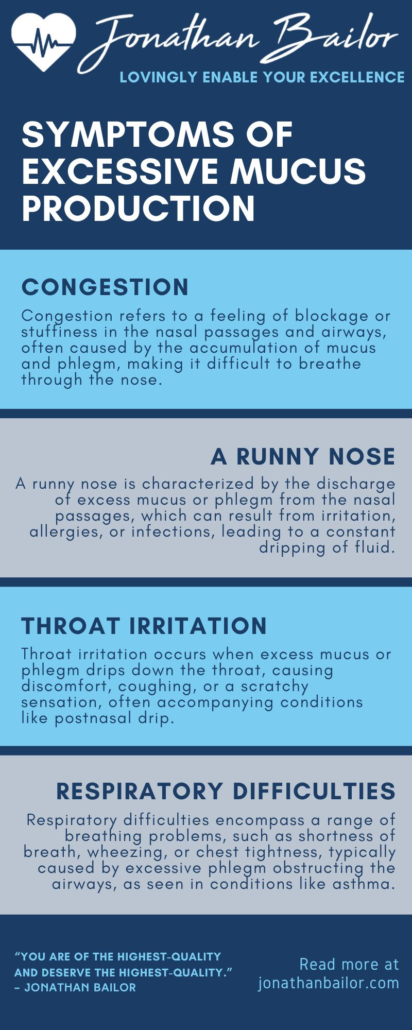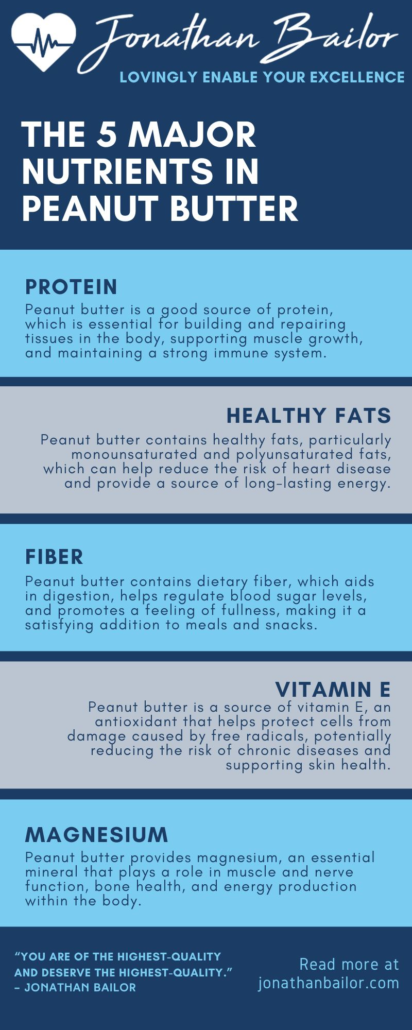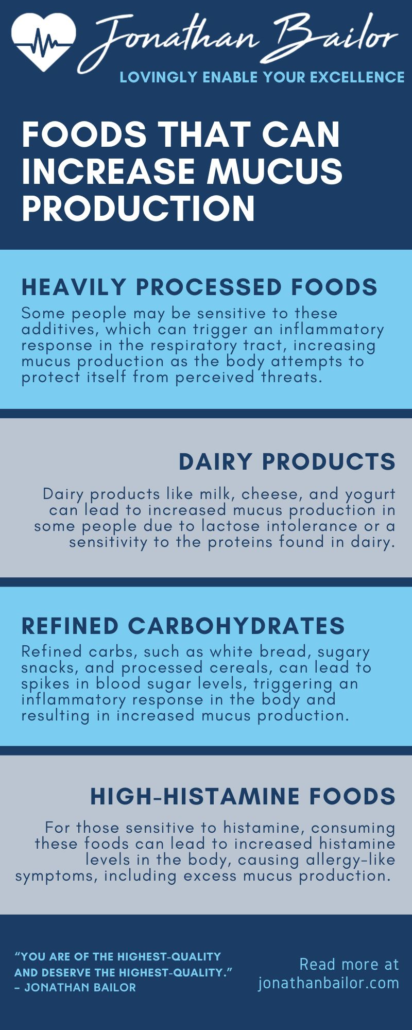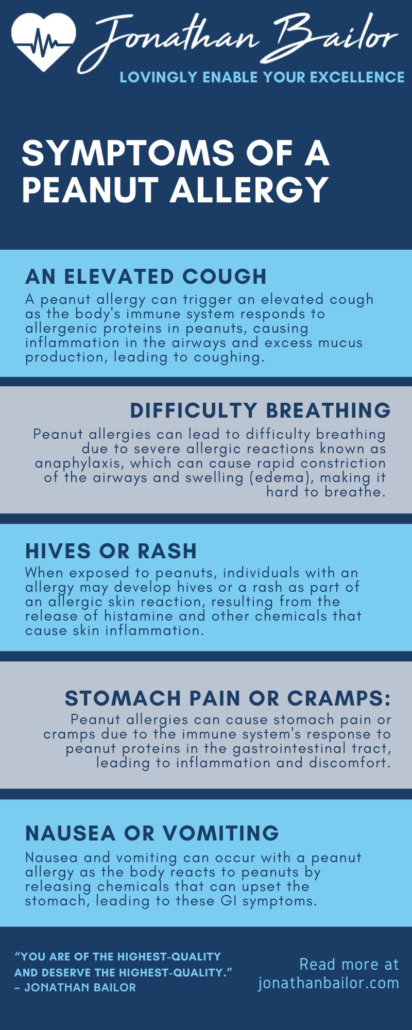Does Peanut Butter Cause Phlegm? Debunking Food Myths
Peanut butter: an everyday staple found in pantries across the globe. But have you ever stopped to consider, does peanut butter cause phlegm? Before you slather your next slice of toast, join us as we jump into this intriguing topic, exploring everything from nutritional profiles to potential respiratory impacts in our coughing and phlegm section with Jonathan Bailor!
Key Takeaways
- Peanut butter does not typically cause increased phlegm production unless a person has a peanut allergy, which can lead to mucus overproduction and respiratory issues.
- Diet plays a significant role in managing mucus production, and consuming certain foods like dairy, processed, or high-histamine foods may increase mucus buildup; lifestyle habits such as hydration and healthy eating can help reduce and manage mucus.
- People with respiratory conditions or peanut allergies should consume peanut butter with caution as it may escalate symptoms; healthier spread options like almond butter or sunflower seed butter and foods that naturally thin mucus, such as ginger and pineapple, can serve as alternatives.
Peanut Butter and Phlegm Production: Is There a Connection?
Peanut butter’s relationship with phlegm production may not be as direct as you might think. Phlegm, or mucus, serves as a protective layer for our respiratory system, trapping everything from dust particles to viruses. However, when the body overproduces mucus, it can lead to congestion and respiratory issues. While peanut butter is not one of the common mucus-producing foods, it may have a negative impact on phlegm production if an individual is allergic to peanuts.
Dive into our 20 Ways to Alleviate Phlegm After Eating and 26 Tips for Managing Chronic Coughs Without Medication guides next!
Mucus production can undoubtedly be influenced by diet. Certain foods might increase phlegm production, and being mindful of these dietary choices can help regulate mucus production to some extent. The symptoms of excessive mucus production range from:
- congestion
- a runny nose
- throat irritation
- respiratory difficulties
In severe cases, excessive or thick phlegm can lead to more serious conditions, such as chronic coughing or throat irritation.

Feeling Better Is Priceless, That's Why We Don't Put A Price On It!
“It’s Like A Free and Medically Valid Version of Noom and Weight Watchers Online”
~ Dr. Doctor Matthew Oleshiak, MD
Click the 'LEARN MORE' button below for free lifetime access to the fast fix program developed by Jonathan and top Ivy League Medical Doctors
LEARN MOREP.S. It's not a free trial. It's not part of the program for free. The entire program is free, forever, for real! No credit card needed.
Nutritional Profile of Peanut Butter
About 22 grams of carbohydrates, 22.5 grams of protein, and 51.1 grams of fat are packed into a serving of peanut butter. It’s not considered one of the common foods that cause mucus production unless you happen to have a peanut allergy. With 6 grams of protein per serving, it may cause stomach acid reflux in some individuals, particularly those sensitive to high-fat foods.
Furthermore, peanut butter contains both saturated and unsaturated fats, including mono- and polyunsaturated fats. These types of fats are not typically associated with mucus production unless you have a peanut allergy. Peanut butter also boasts a healthy serving of vitamins and minerals, including:
- Copper
- Manganese
- Vitamin B3 (niacin)
- Iron
- Folate
- Vitamin E
- Vitamin B6
- Magnesium
However, it’s important to distinguish between natural and processed peanut butter. Processed varieties may contain added sugars, oils, and fats, resulting in higher levels of saturated fat and sodium.

Allergies and Sensitivities Related to Peanuts
Indeed, peanut allergies can lead to mucus overproduction, which may result in congestion or respiratory difficulties. In fact, peanuts are one of the most common allergens that can impact mucus production, alongside eggs, milk, soy, fish, shellfish, wheat, and tree nuts.
For individuals sensitive to these allergens, their intake can cause a reaction similar to the milk increase mucus production phenomena.
The Role of Diet in Mucus Management
Diet plays a significant role in managing mucus production. Certain foods, such as:
- processed foods containing additives
- dairy products
- refined carbohydrates
- specific high-histamine foods
Certain mucus-causing foods, also known as mucus-forming foods, have the potential to induce excessive mucus production, leading to mucus buildup. Limiting or abstaining from these foods can help regulate mucus production and prevent excess mucus.
Moreover, adopting certain eating habits can aid in the management and reduction of mucus production. Similarly, weight loss drugs may be an option for certain individuals seeking to manage weight-related conditions that can indirectly impact respiratory health, including mucus production. These should be used under medical guidance to ensure safety and effectiveness. This not only includes incorporating mucus-reducing foods, but you can also reduce mucus production by:
- Maintaining hydration
- Practicing thorough chewing of food
- Opting for smaller meals at regular intervals
- Potentially integrating digestive enzyme supplements
It’s also worth noting that dietary elements like sodium and alcohol can induce inflammation in the body, consequently elevating mucus production.

Does the Fat Content in Peanut Butter Increase Mucus?
Both saturated and unsaturated fats are abundant in a serving of peanut butter. However, these fats impact mucus production in different ways. The consumption of dietary fats does influence mucus production, and a diet rich in fiber and low in fats and sugars is linked to a healthy microbiota, which can facilitate proper mucus production.
Conversely, a diet high in fats and sugars, characteristic of a Western-style diet, may lead to increased colonic mucus permeability. Extensive scientific research has confirmed the association between this dietary pattern and heightened mucus production.
Comparing Saturated and Unsaturated Fats
Saturated fats, typically solid at room temperature, have the potential to contribute to the buildup of fatty deposits in the blood vessels. On the other hand, unsaturated fats, which are liquid at room temperature, have the capacity to enhance blood cholesterol levels and mitigate inflammation within the body.
When it comes to mucus production, saturated fats can potentially lead to an elevation. This can affect the mucus membranes in the respiratory system. However, unsaturated fats, which are present in higher quantities in peanut butter than saturated fats, have not been directly connected to negative impacts on mucus production.
Impact of Fatty Foods on the Immune System
The immune system and mucus production can be significantly impacted by fatty foods. A diet rich in fiber and low in fats and sugars can support a microbiota that positively influences mucus production. In contrast, a diet high in fat and sugar and lacking in fiber may lead to increased colonic mucus permeability.
Unsaturated fats, such as those present in:
- Sunflower oil
- Corn oil
- Soybean oil
- Flaxseed oil
- Walnuts
- Flax seeds
- Fish
- Canola oil
have a beneficial impact on the immune system by regulating immune responses. Conversely, the consumption of fatty foods can potentially lead to inflammation, which may have adverse effects on various bodily functions, including the immune response.
For certain individuals, weight loss drugs may complement dietary changes to manage inflammation and promote healthier immune and respiratory functions, particularly when combined with other lifestyle adjustments.
Can Peanut Butter Worsen Respiratory Symptoms?
Peanut butter, with its dry and sticky texture, might cause discomfort or throat irritation for some individuals. Individuals who are allergic to peanuts may experience:
- an elevated cough
- difficulty breathing
- hives or rash
- stomach pain or cramps
- nausea or vomiting
after consuming peanut butter.
Peanut butter also has the potential to exacerbate a range of respiratory symptoms, such as difficulties with swallowing and breathing, particularly for individuals with allergies, in addition to coughing.
Symptoms related to weak lower and upper esophageal sphincters include hoarseness, a sore throat, heartburn, a persistent cough, and the presence of mucus in the back of the throat.

Throat Irritation and Peanut Butter
Throat irritation might be caused by certain ingredients in peanut butter, such as salt, sugar, and arachidonic acid. The high fat content in peanut butter can potentially lead to acid reflux or GERD symptoms in certain individuals. However, peanut butter is not considered one of the common foods that cause mucus production, unless an individual has a peanut allergy.
Indeed, peanut butter can induce throat irritation in individuals with peanut allergies. This is attributed to its dry and sticky texture, which can lead to reactions such as itching or tingling in or around the mouth and throat.
Peanut Butter and Asthma
Peanuts contain a protein that can induce an inflammatory reaction in the airways, potentially resulting in the manifestation of asthma symptoms. For children with asthma, the consumption of peanut butter needs to be approached with caution due to the potential for allergies.
It’s also worth mentioning that added sugar in certain peanut butter brands may exacerbate asthma symptoms due to a heightened response to sugar, resulting in increased mucus production.
Mucus Reducing Alternatives to Peanut Butter
Several alternatives to peanut butter can help manage mucus production for those with peanut allergies or other sensitivities. For instance, almond butter and sunflower seed butter are nutritious substitutes that provide several health benefits over peanut butter.
There are also various foods known to naturally help thin mucus. These include spicy foods such as chili peppers, which contain capsaicin that facilitates mucus thinning, and beverages like herbal teas, where steam and warmth can help in loosening the mucus.
Healthier Spread Options
Sunflower seed butter, for example, contains:
- Higher levels of magnesium, zinc, and phosphorus compared to peanut butter
- Double the amount of iron
- It’s also a rich source of zinc, iron, protein, and fiber and has low levels of saturated fat.
Cashew butter, on the other hand, contains higher content of iron and magnesium compared to peanut butter, with a slightly higher amount of monounsaturated fat, known for its heart-healthy properties. However, peanut butter does provide a greater amount of protein per serving.
Foods That Naturally Thin Mucus
There are numerous foods known to naturally thin mucus. Ginger and pineapple are especially beneficial due to their properties that aid in breaking up mucus congestion. Pineapple contains an enzyme known as bromelain, which facilitates the breakdown of mucus proteins, while ginger assists in desiccating surplus mucus and promoting its elimination from the respiratory system.
Spicy foods, due to the presence of capsaicin, can induce mucus production in the nose and throat, offering relief from coughing. However, keep in mind that spicy foods may also:
- Trigger nonallergic sinusitis attacks
- Lead to nasal congestion
- Diminish sense of smell
- Cause other symptoms
Lifestyle Tips to Manage Phlegm Production
Phlegm production can be managed with several lifestyle adjustments. Hydrating beverages such as water, tea, and other similar drinks can assist in breaking up mucus congestion and facilitating the body’s innate mucus-clearing mechanisms.
Environmental factors also play a significant role in mucus production. Exposure to smoke or pollution can elevate mucus production, making it essential to regulate these environmental factors to effectively manage phlegm.
Hydration and Its Role in Mucus Management
Hydration is critical for the formation and management of mucus. It helps maintain the consistency of mucus, making it thinner and easier to expel from the body. The lungs, composed of 85% water, require continuous moisture to facilitate the intake of oxygen and the elimination of carbon dioxide. Dehydration can lead to thicker mucus and increased stickiness, which can hinder respiratory function.
The recommended water intake for proper hydration varies based on individual requirements and health guidelines. However, adequate water consumption can assist in thinning the mucus and facilitating easier expulsion through coughing. Additionally, certain individuals pursuing weight loss goals might explore weight loss drugs as part of a broader health strategy. These medications, when medically appropriate, could indirectly support respiratory health by addressing underlying weight-related factors.
Breathing Exercises and Environmental Factors
The production of mucus and phlegm can be reduced with breathing exercises. These exercises include:
- Taking deep, slow breaths and exhaling quickly with a ‘ha’ sound
- Huffing exhales to expel the phlegm
- Making short, loud, and sharp coughs followed by slow inhalation through the nose
Managing environmental factors such as avoiding pollution, controlling humidity and temperature, and minimizing exposure to allergens is also crucial for reducing phlegm production. These practices aid in maintaining clean and clear airways, thereby contributing to overall respiratory health.
Frequently Asked Questions
Can peanuts cause phlegm?
Yes, peanuts can cause excessive mucus production in some individuals, leading to congestion and other symptoms of food allergies.
What foods cause phlegm in throat?
Dairy products, processed foods with artificial sweeteners, sodium, and thickening agents can increase mucus production. Avoiding these foods can help reduce phlegm in the throat.
What foods help break up phlegm?
Ginger and citrus fruits like lemons can help break up phlegm and make it easier to expel from the body. They also provide a good dose of Vitamin C, a powerful antioxidant.
What alternatives can I consider for peanut butter?
You can consider alternatives such as almond butter, sunflower seed butter, and cashew butter as nutritious substitutes with several health benefits over peanut butter. These options offer variety and nutritional advantages.
Can lifestyle changes help manage phlegm production?
Making lifestyle changes like staying hydrated, avoiding pollution, and practicing breathing exercises can help manage phlegm production effectively. These changes can reduce the amount of phlegm produced in the body.
Feeling Better Is Priceless, That's Why We Don't Put A Price On It!
“It’s Like A Free and Medically Valid Version of Noom and Weight Watchers Online”
~ Dr. Doctor Matthew Oleshiak, MD
Click the 'LEARN MORE' button below for free lifetime access to the fast fix program developed by Jonathan and top Ivy League Medical Doctors
LEARN MOREP.S. It's not a free trial. It's not part of the program for free. The entire program is free, forever, for real! No credit card needed.




